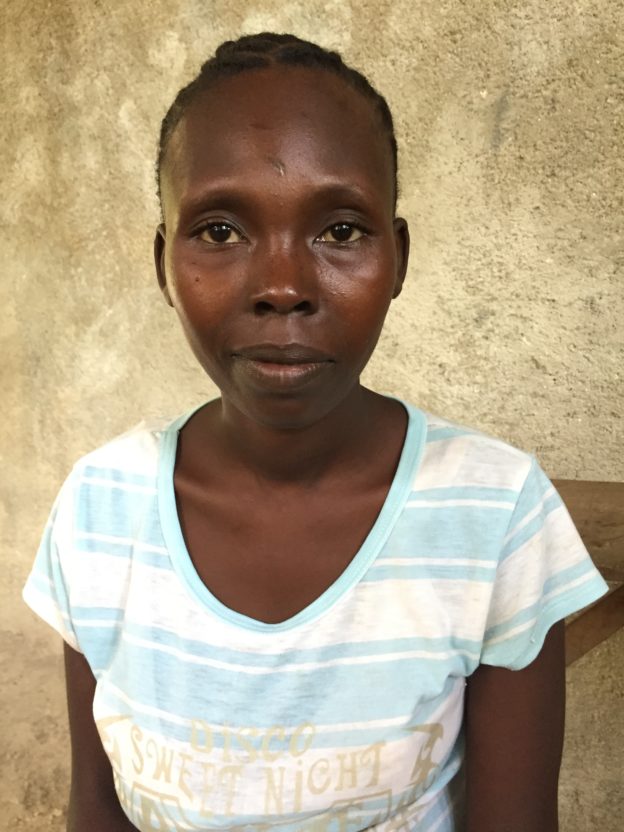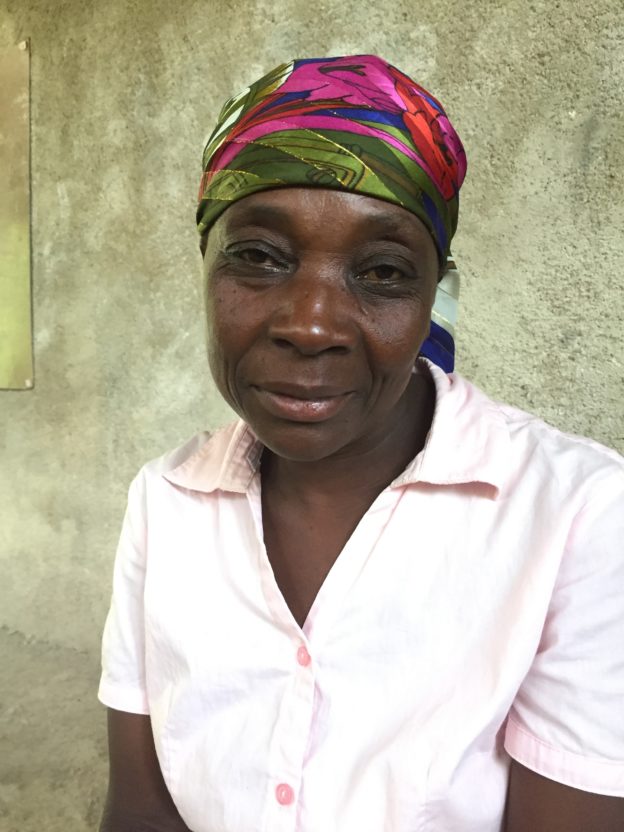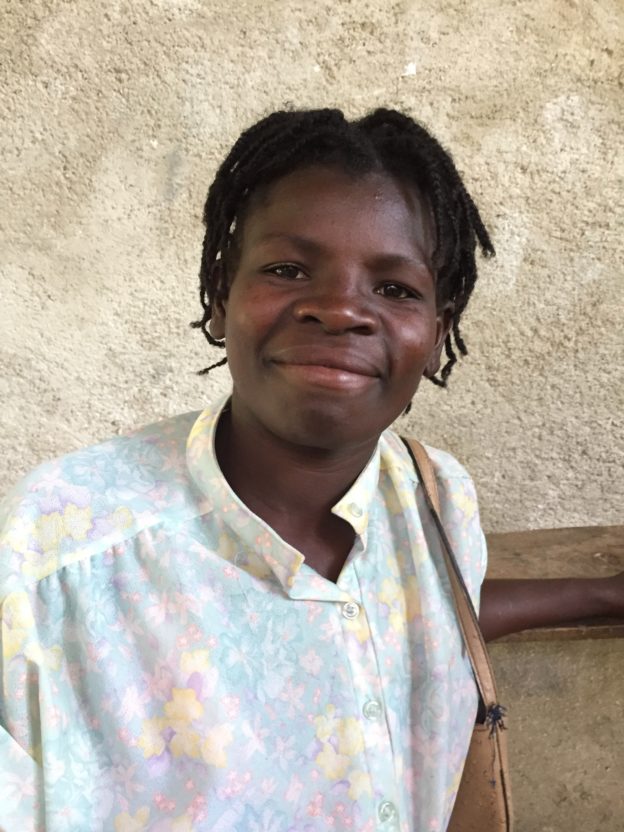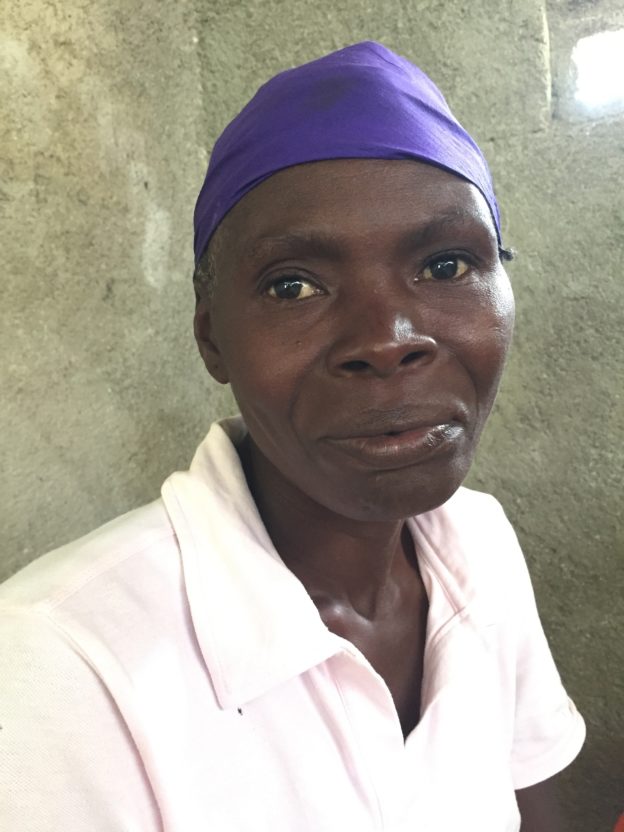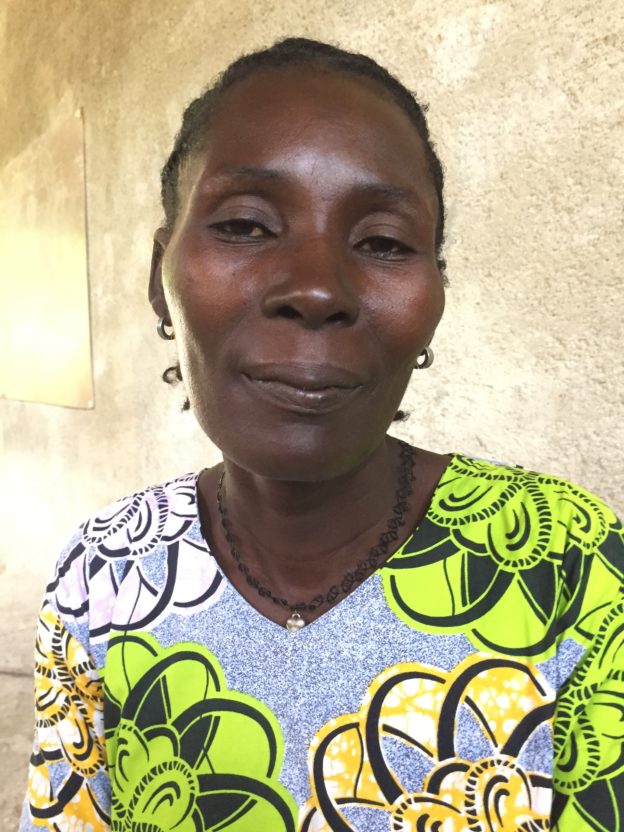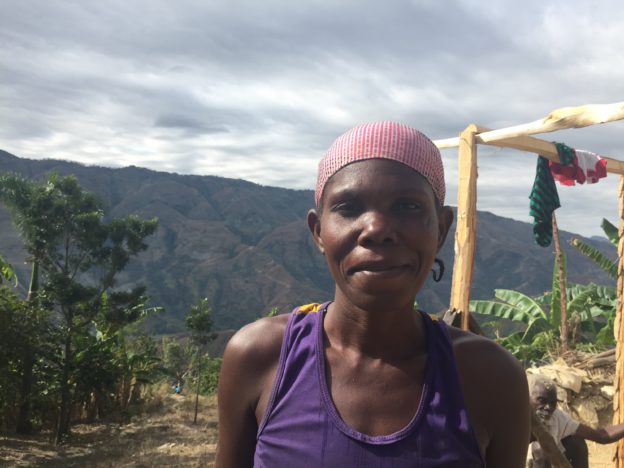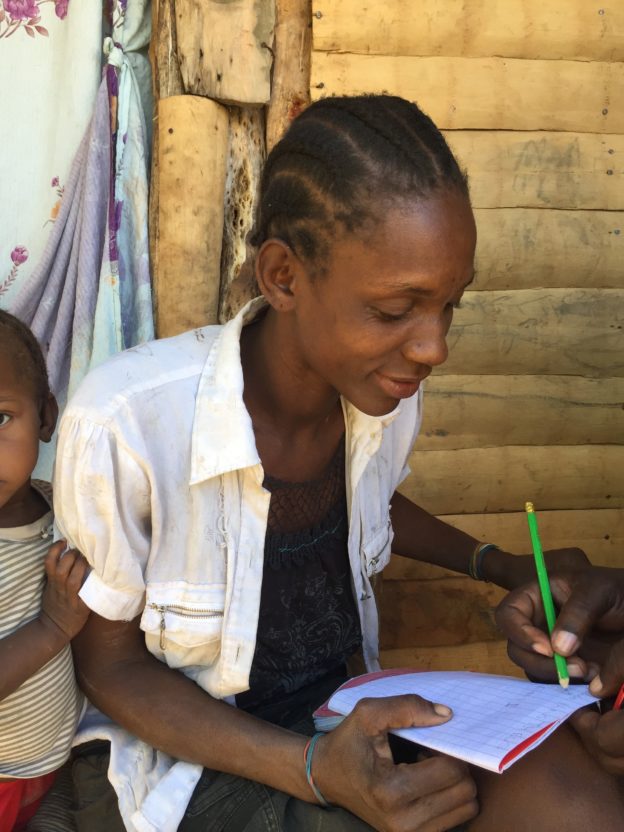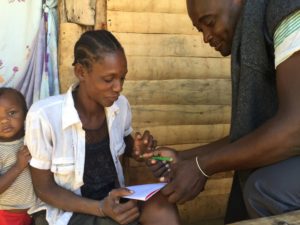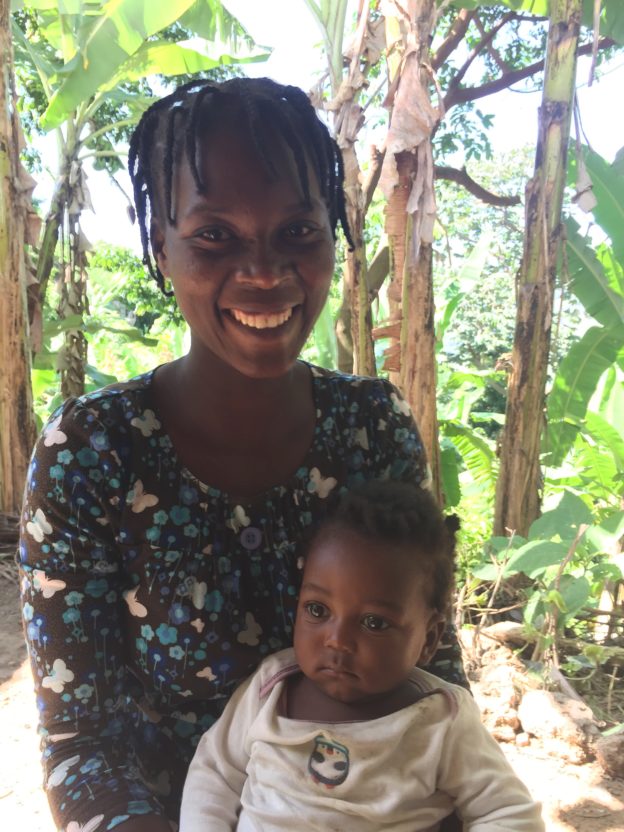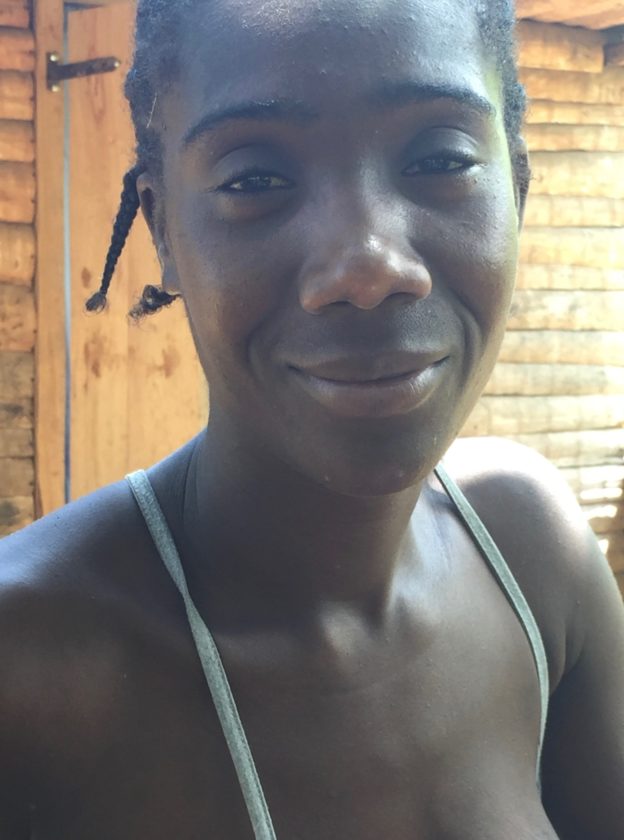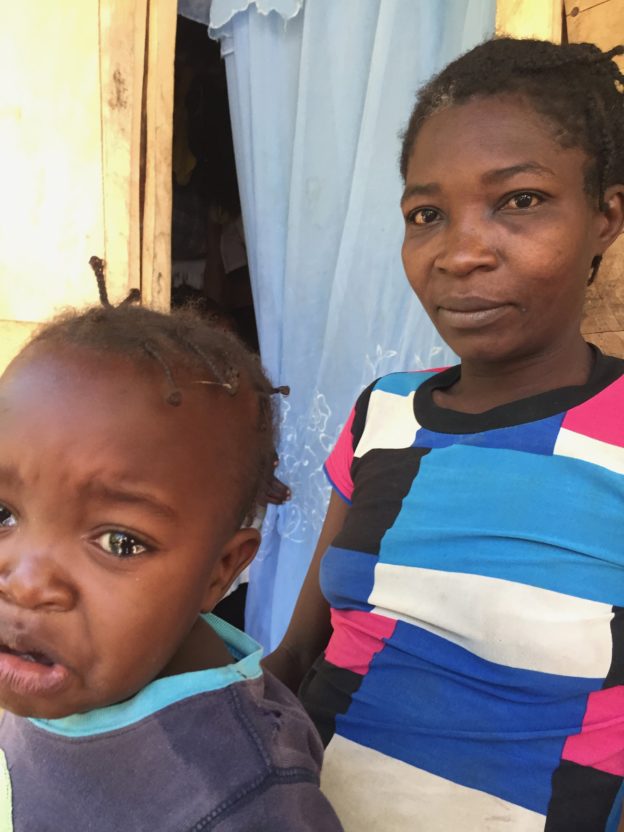The last month or so has been a sad time for Rosemitha. Her mother-in-law passed away in the hospital at La Colline after a short illness. Rosemitha is heartbroken. “She was always the one that took care of me.” Rosemitha’s husband spent much of his time in the Dominican Republic, trying to earn money, before the family joined the CLM program, leaving his wife and his mother back home with the kids. “When I had my child, she helped me and bathed me in the days afterwards until I could bathe myself.”
And the death did more than make Rosemitha sad. She had been proud of her new-found success as a businesswoman, and her husband was increasingly proud of her. But she spent all the capital in it taking care of the older woman, most of it even before she died. Care at La Colline was free, but either Rosemitha or her husband had to stay with her all the time, and whoever it was had to eat. Whatever was left of the money passed as part of funeral expenses, along with the income from the small patch of beans that her husband planted in the spring. And the couple still owes the coffin-maker 7500 gourds, or about $120. The CLM program can eventually help offset that debt, but Rosemitha doesn’t know that yet, so she is worried.
Without the income from her commerce, food in the home has once again become a challenge. Much of the time she’s reduced to feeding the family little more than plantains and greens from her small yard. The rice field her husband planted should help eventually, but in the meantime, times are hard.
She wants to get back in business as soon as she can, but she, her husband, and her case manager will need to figure out where she’ll get the money. And without her mother-in-law, she’ll face another challenge because she always felt good about leaving the children with her. As things stand, she can’t even leave the two younger kids with her stepdaughter because during his mother’s illness, her husband sent his daughter to live with a relative of his near La Colline. Her stepson and baby are too young to be left alone.
